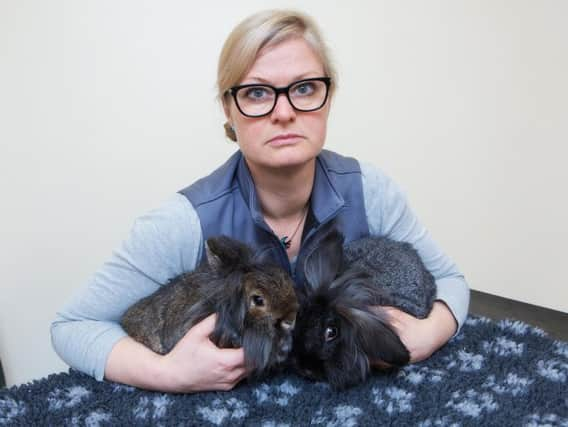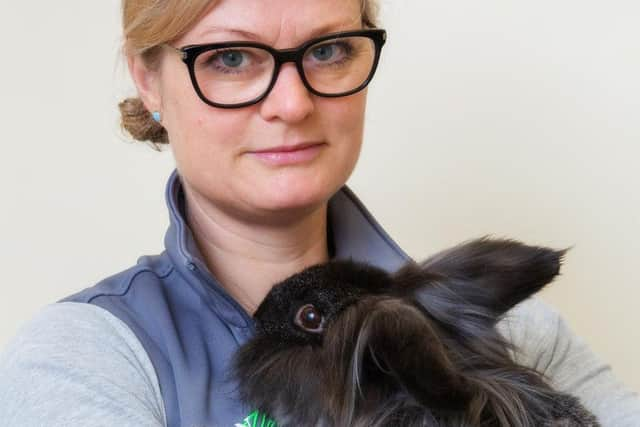Warning as deadly rabbit disease spreads through North East


A vet is warning rabbit owners after an outbreak of a virulent strain of Haemorrhagic Disease (RVHD) called RVHD-2 and urging them to have their pets vaccinated.
A number of cases have been confirmed in Chester-le-Street, Newcastle, Gateshead, Stanley, Cramlington and Darlington.


Advertisement
Hide AdAdvertisement
Hide AdThis highly contagious disease, which can be carried by both wild and domesticated rabbits, is often symptomless and rabbits can be found dead with no obvious signs of disease.
Honor Etherington, a veterinary surgeon senior Hadrian Vets, said: "What makes RHVD-2 more dangerous than RHVD-1 is its longer infectious period. This results in wider disease spread and there have been cases confirmed all over the North East, which is extremely worrying.
“RHVD-2 is less easily recognised because there are few outward signs. Rabbits can simply be found dead or none specifically ill. Because of this, owners often do not realise their rabbit has an infectious disease, resulting in late treatment and spread of infection to other rabbits."
RHVD-2 started in China in 1984, where it killed millions of rabbits, before spreading in rabbit pelts into Europe. It was confirmed in the UK in 2013. It is often fatal, although some rabbits have recovered with veterinary care.


Advertisement
Hide AdAdvertisement
Hide AdThe current UK vaccine, Nobivac Myxo-RHD, offers protection against RVHD-1 and Myxomatosis, but is unlikely to offer any protection against RVHD-2, as this strain of the virus is genetically different.
Ms Etherington said it is recommended that a second vaccination be given to cover RVHD-2.
There is no cure for the disease, which has been reported all over the UK as well as the North East, and the only way to protect pets is through vaccination.
How to keep your rabbits safe
Miss Etherington urged owners to take extra precautions with hygiene and care to prevent the spread of disease.
Advertisement
Hide AdAdvertisement
Hide Ad“Both strains of RVHD are spread by direct contact with infected wild rabbits, or indirectly via urine or faeces," she said
“The viruses can survive for months in the environment and are easily brought home on clothing, footwear, plants, hay, the wind, and your other pets or other birds and insects visiting your garden.
“Owners should make sure they use disinfectant to clean hutches and living areas. They should disinfect boots if they are going in and out of places where rabbits are kept, wear and apron and washing their hands thoroughly before handling each rabbit.
She added: “New rabbits should be quarantined for a minimum of two weeks and should not share anything with your current rabbits. Always wash your hands and disinfect after any suspicious illness or death.
Advertisement
Hide AdAdvertisement
Hide Ad“You should discuss the risks and benefits of vaccinating your rabbit with your vet. There is a small risk to any animal by giving any vaccination, which is why animals should only be vaccinated if they are healthy.
“I believe vaccination against RVHD in a healthy rabbit is essential. At Hadrian Vets the vaccination is covered by the rabbit Pet Health Plan at no additional cost. We are currently offering the vaccination for non-health plan holders for a reduced fee to try to stop the spread of this disease.”